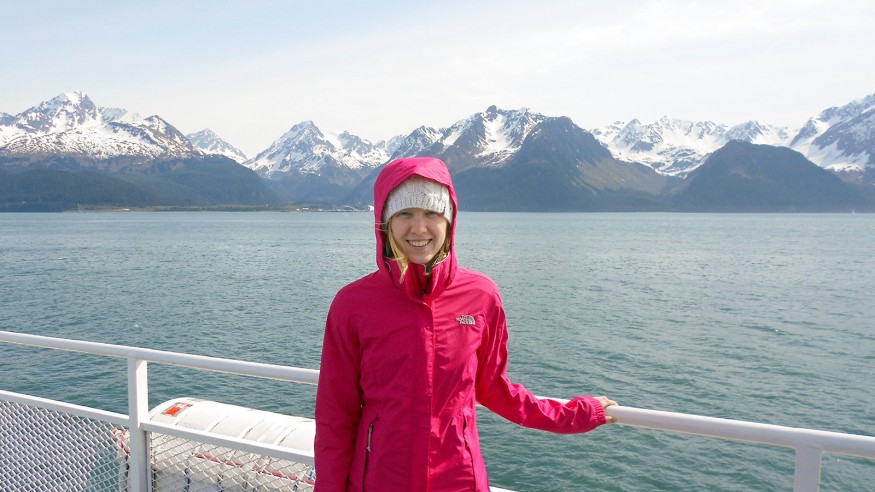It's Inauguration Week!
Let the Fun Begin! View details for Inauguration Day and access the full schedule of events.
Let the Fun Begin! View details for Inauguration Day and access the full schedule of events.

August 26, 2014 | By Katie Nunner '15

Learn how OWU’s Course Connections, Travel-Learning Courses, Theory-to-Practice Grants, and other programs prepare students for global citizenship and leadership and help them…Make the Connection.
Whitney Lonnemann ’15 was among a group of OWU students who visited Alaska’s Matanuska Glacier over the summer as part of a Travel-Learning Course. Taught by Craig Jackson, Ph.D., associate professor of mathematics and computer science, the course examined “Mathematical Models of Climate.” (Photo courtesy of Whitney Lonnemann ’15)
Name: Whitney Lonnemann ’15
Major: Mathematics
Minor: Education
Hometown: Cincinnati, Ohio
Experience: Travel-Learning Course, “Mathematical Models of Climate”
Lesson Learned: “I know that math is used all the time in day-to-day activities and is applicable in many different fields, but this trip let me truly experience my love of math out in the ‘real world.’
“I think, for me, this was especially important to see and experience firsthand because after I graduate from Ohio Wesleyan I plan on teaching high school math. I know that all too often students are asking, ‘When am I ever going to use this outside of the classroom?’ From having the opportunity to travel to Alaska and study how you can use mathematics to model different aspects of climate such as glaciers, I now have the firsthand experience to tell them.
“While in Alaska, we climbed Matanuska Glacier so that we could set up our own flux tower to gather information about wind direction and temperature overnight. We also set up a second flux tower off of the glacier so that we would be able to compare the two different data sets. It was neat to be able to find this data for ourselves rather than just being given it, as we would have if we did not have the travel component of the trip. I think this type of experience matters because … you are not always just given a data set. Most of the time, you have to go and collect the data on your own.
“Another meaningful part of this trip was getting to listen to some of the researchers at IARC (International Arctic Research Center). We were lucky enough to hear from six different researchers and all of the different things that they study. Some talked about the glaciers and modeling how they are changing. Others talked about their modeling of the ocean and the zooplankton, while others talked about modeling the climate and how its changes affect other parts of the world.
“The travel component of ‘Mathematical Models of Climate’ gave me a firsthand look into all the different ways that people are using math for research. This knowledge is something I will always hold valuable to me and will hopefully be able to inspire my future students to become mathematicians themselves.”